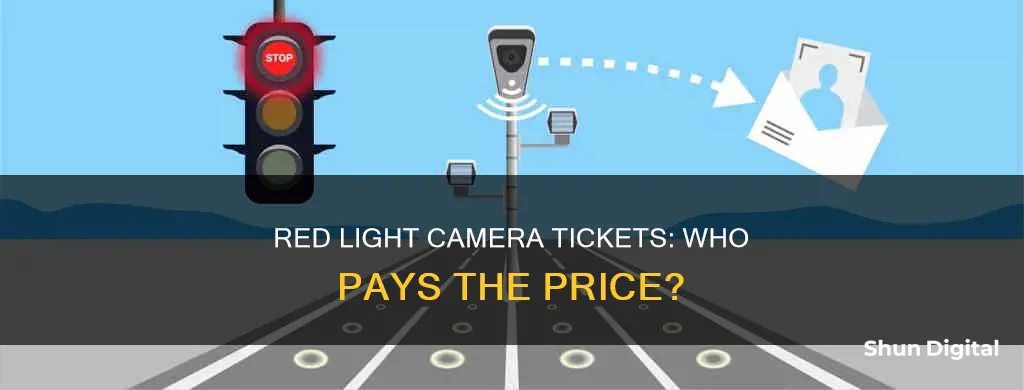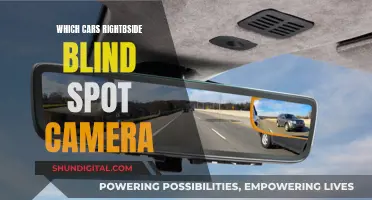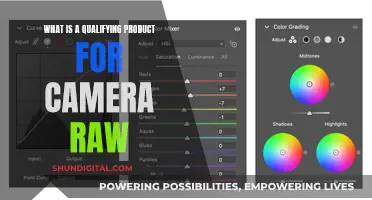
Red light camera tickets are a contentious issue, with many people questioning whether they are legally required to pay them. While the laws vary by state, it's important to understand the potential consequences of ignoring a red light camera ticket. In some states, such as Tennessee, these tickets do not add points to your license or affect your credit or insurance rates. However, in other states like Illinois and Colorado, ignoring a red light camera ticket can lead to increased fines, vehicle seizure, and legal complications. It's always a good idea to review the specific laws and regulations in your state to make an informed decision.
| Characteristics | Values |
|---|---|
| Ticket cost | Varies depending on location, but generally under $100 |
| Enforceability | Tickets are legal and enforceable, but there are ways to avoid paying |
| Time to pay | Varies depending on location, but generally within 30 days |
| Failure to pay | Varies depending on location, but may include fines, vehicle seizure, or issues with license renewal |
| Dispute process | May be able to dispute online or in court, but unlikely to be overturned |
What You'll Learn
- Red light camera tickets are legal and enforceable
- Ignoring a ticket may not be a criminal offence but could lead to further penalties
- Tickets are sent to the owner of the vehicle, not the driver
- You may be able to dispute the ticket if there are no warning signs at the intersection
- In some places, non-payment cannot impact your driver's license, insurance rates, or credit report

Red light camera tickets are legal and enforceable
Red light camera tickets are generally considered legal and enforceable, although the laws surrounding them vary by state. In some states, such as California, Georgia, and Illinois, red light cameras are permitted, while other states, such as Arkansas, Nevada, and Texas, prohibit their use, except under certain circumstances. In Colorado, for example, red light camera tickets are legal and enforceable, with a maximum fine of $75. While these tickets do not carry any points against your driver's license, failure to pay can result in additional court fees and penalties.
It's important to note that even if you receive a red light camera ticket, you may have options to dispute it. For instance, you can review the photo and video evidence associated with the ticket and, in some cases, contest the violation. Additionally, if you were not the driver of the vehicle at the time of the infraction, you may be able to file a "not pictured driver" affidavit, stating that you were not the person operating the vehicle. However, providing false information in such an affidavit can result in criminal charges.
While red light camera tickets may be legal and enforceable, there are often ways to avoid paying the fines if you understand the process and are comfortable with any associated risks. For example, in some states, failing to respond to a mailed notification may not result in any immediate consequences, although continued inaction could lead to further legal action.
It's always a good idea to consult with a local traffic attorney to understand your specific state's laws and your options for responding to a red light camera ticket. They can guide you through the process and help you make an informed decision about how to proceed.
Glass Cameras: S10e's Unique Feature
You may want to see also

Ignoring a ticket may not be a criminal offence but could lead to further penalties
Red light camera tickets are generally enforceable and must be paid. However, there are certain exceptions where you can ignore a ticket without facing criminal charges.
In Colorado, ignoring a mailed ticket is not a criminal offence. However, if you fail to pay the ticket within the given time frame, the government may send a Penalty Assessment Notice (PAN) within 90 days of the offence. This notice must be signed by you in person and requires you to pay the fine by the date stated on the citation. If you are not home to receive the PAN, it is not enforceable. Nevertheless, if you receive an official summons, you must go to court and answer the charges.
In Illinois, ignoring a ticket will not result in any legal repercussions such as a suspended licence. However, you may face additional fines and penalties. The original ticket amount will increase, and the city of Chicago can also boot and seize your vehicle. Therefore, it is advisable to respond or pay the ticket on time to avoid these consequences.
In Tennessee, red light camera tickets are not enforced, and there is no statutory authority to require payment. These tickets do not affect your driver's license, insurance rates, or credit report. While the city can take you to court, most cases do not get that far.
It is important to note that laws and enforcement may vary by location, so it is always best to check the specific rules and regulations in your area.
Troubleshooting Camera Raw: Autocropped Images Explained
You may want to see also

Tickets are sent to the owner of the vehicle, not the driver
Red light camera tickets are typically sent to the owner of the vehicle, not the driver. This means that even if you weren't driving the car, you may still receive the ticket and be held responsible for the violation. However, it's important to note that the laws and enforcement procedures regarding red light camera tickets may vary depending on your location.
In some states or municipalities, the registered owner of the vehicle will be held liable for any red light camera violations, regardless of who was driving. This means that even if someone else was driving your car and ran a red light, you, as the owner, will receive the ticket and be responsible for paying the associated fees. This can be frustrating, especially if you were not at fault.
To fight a red light camera ticket, you may need to prove that you were not the one driving the car at the time of the incident. This can be done by providing clear evidence or an affidavit stating that you were not the driver. In some cases, you may also need to provide a valid reason for running the red light, such as unsafe road conditions or an emergency situation.
It's worth noting that red light camera tickets are considered a legal grey area in some jurisdictions. While they are generally enforceable, there may be ways to avoid paying the fines if you understand the specific laws and processes in your area. For example, in some cases, you may need to be personally served with a notice or summons, rather than simply receiving a mailed ticket, for the ticket to be enforceable.
To make an informed decision about how to handle a red light camera ticket, it is always best to review the specific laws and regulations in your state or municipality. Consulting with a legal professional can also help you understand your rights and options for disputing the ticket.
Bing Camera Battery: What Powers These Devices?
You may want to see also

You may be able to dispute the ticket if there are no warning signs at the intersection
If you've received a red light camera ticket, you may be wondering if you have to pay it. These tickets are generally legal and enforceable, but there are some instances where you may be able to dispute the ticket. Here are some things to keep in mind:
First, it's important to understand the laws in your state regarding red light camera tickets. In some states, these tickets carry the same penalties as traditional stoplight tickets, while in other states, the penalties for camera violations are less severe. Knowing the specific laws in your state will help you understand your options for disputing the ticket.
One option for disputing the ticket is to verify that there were warning signs posted at the intersection. Many states and local municipalities have laws requiring signs to be posted at intersections with red light cameras. These laws often specify what the signs must say, where they must be located in relation to the intersection, and how far in advance they must be visible to drivers. If there were no warning signs posted at the intersection, or if the signs were not clearly visible, you may have a valid defence against your ticket. Be sure to review any photos or videos of the incident, as well as visiting the intersection yourself to check for signage.
If you decide to dispute the ticket, you will likely need to submit an affidavit or other documentation explaining your reasons for disputing the ticket. Be thorough in your examination of the evidence and provide as much detail as possible to support your claim. You may also want to consult with an attorney who specialises in traffic law to help you navigate the legal process and improve your chances of a successful dispute.
Unleash Special Effects: Camera Raw Power
You may want to see also

In some places, non-payment cannot impact your driver's license, insurance rates, or credit report
In some places, such as Tennessee, non-payment of a red-light camera ticket cannot impact your driver's license, insurance rates, or credit report. According to Lenagar & Barnes, Tennessee State Law requires each citation to state in large bold letters:
> NON-PAYMENT OF THIS VIOLATION CANNOT HAVE A NEGATIVE IMPACT ON YOUR DRIVERS LICENSE, CAR INSURANCE RATES, OR CREDIT REPORT.
Attorney Murray Wells supports this statement, advising people to throw their tickets away. He states that there doesn't seem to be any statutory authority to enforce a ticket. However, the city of Memphis can take you to court to collect the $50 ticket, but most cases do not get that far, according to Wells.
The SX-70 Polaroid Camera: A Revolutionary Invention of 1972
You may want to see also
Frequently asked questions
Yes, red light camera tickets are legal and enforceable. However, there are ways to avoid paying the fines, such as filing a "not pictured driver" affidavit or requesting a review of your citation.
Yes, ignoring a red light camera ticket can result in more fines and vehicle seizure. The basic fine for these tickets is $100, increasing to $200 if paid late.
Yes, the owner of the vehicle is required to pay the ticket, which costs $325. Failure to pay the ticket could result in issues with renewing your driver's license and registering a vehicle.
No, according to attorney Murray Wells, there doesn't seem to be any statutory authority to enforce a ticket from a red light camera. Additionally, Tennessee state law requires each citation to state that non-payment will not negatively impact your driver's license, car insurance rates, or credit report.
If you receive a red light camera ticket, you have several options. You can choose to pay the fine, especially if the amount is relatively low and you want to avoid further inconvenience or potential consequences. Alternatively, you can dispute the ticket, but this may require time and effort, and the outcome is not guaranteed. You could also seek legal advice to understand your specific rights and options in your location.







